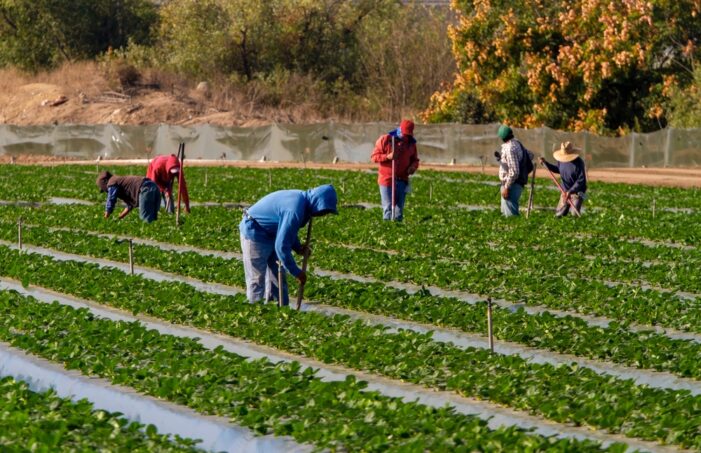Edward Kissam| americancommunitymedia.org
The U.S. Department of Labor plans to discontinue the National Agricultural Worker Survey (NAWS) by September 27th.
Loss of data from the survey, widely-recognized as providing the best and most up-to-date information on more than 2 million U.S. farmworkers and their families, will have serious negative impacts for agricultural employers, farmworker service programs, and hundreds of other stakeholders, including local and state government, and policymakers in Congress.
NAWS has now provided updated information on U.S. crop workers for 37 years. Over the years, the Department of Labor has published 17 major reports of NAWS findings and hundreds of published papers reference it in their analyses of issues ranging from workforce productivity to occupational health and safety, to housing.
It has provided crucial insights and essential planning information for programs such as Migrant Head Start, The National Farmworker Jobs Program, Migrant Education, and the national Migrant Health Program. Spending in these programs is about $1 billion per year and the demographic and socioeconomic data from NAWS is crucial to assure equitable allocation of funding for these Congressionally mandated programs. It also helps guide newer initiatives such as planning for rural broadband expansion.
NAWS data has been especially valuable for public health planning and research—providing crucial information on farmworker health conditions and access to health care. Bethany Alcauter, director of Research and Public Health Programs at the National Center for Farmworker Health explains, “NAWS is necessary to understand the health of migrant farmworkers because census and economic survey data does not provide the reliable information we need on age, living conditions, and health care access of these mobile workers.”
For example, during the COVID-19 pandemic, NAWS provided crucial insights about farmworker housing and family composition needed to better understand and ameliorate viral transmission.
Ending NAWS will save the federal government about $4 million per year. But at the same time, losing it will force multiple federal agencies to develop new and untested ways to understand how best to sustain a labor force whose work is essential to the agricultural industry, U.S. consumers’ access to fresh fruit and vegetables, and the U.S. economy overall.
Dr. Richard Mines, who developed the NAWS and supervised it for two decades, explains that it was designed to be flexible. Many different federal agencies could and did rely on it to help them confront newly emerging challenges. For example, as farmworkers legalized under the 1986 Immigration Reform and Control Act (ORCA) have aged, the survey has provided a wealth of practical information about farm labor supply over the years—a key element for making wise decisions about immigration policy (including both the impact of Congressional decisions on ways to provide work authorization for current farmworkers who lack legal status and the H-2A guest worker program).
What’s behind the decision to terminate NAWS? Is it a knee-jerk reaction at the Department of Labor in reaction to unwelcome criticism of Bureau of Labor Statistics (BLS) findings earlier this month?
Or is it a head-in-the-sand effort to ignore the real-world diversity of U.S. communities and the role that immigrant workers play in the U.S. economy?
That’s not easy to tell since the U.S. Department of Agriculture’s recent termination of its’ Farm Labor Survey was explained away with vague platitudes about finding alternative data sources and methodology. These moves are part of a broader federal push to save money by simply analyzing administrative records. But the high quality of NAWS data stems from the fact that interviewers talk directly with farmworkers about their lives.
So what does cancellation of NAWS mean for farmworker communities? Mario Russell, executive director of the Center for Migration Studies, puts it well. “Canceling data about immigrant workers is, in effect, another step towards erasing the ‘they’ that they are.”
The necessary response is for farmworkers and data users to quickly raise their voices to assert they do exist and urge the Department of Labor to reconsider and continue NAWS as a contribution to sound government and community well-being.
Edward Kissam is a leading researcher and advocate for strategies to deal with health issues impacting immigrant communities. He has led research on farmworker and immigrant issues sponsored by the Department of Labor, the Commission on Agricultural Workers, and the National Institute for Food and Agriculture. He worked as a farmworker outreach expert on several COVID-19 initiatives during the pandemic and published extensively on steps to improve strategy.

